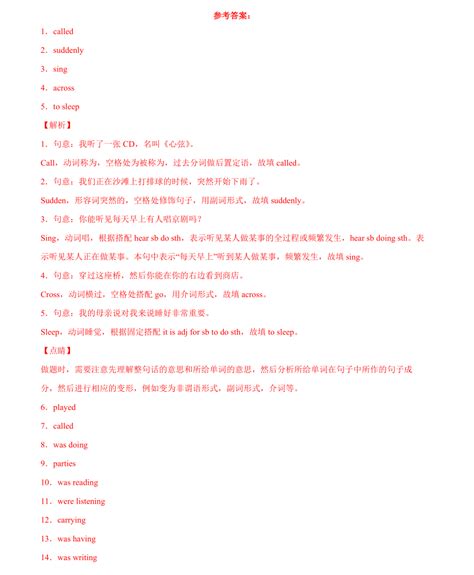What's the English Translation of 'Failure is the Mother of Success'?
The Saying "Failure is the Mother of Success" in English

The ancient Chinese proverb "Failure is the Mother of Success" encapsulates a profound wisdom that transcends cultural and linguistic boundaries. This timeless phrase has inspired countless individuals across generations, encouraging them to persevere through adversity and learn from their mistakes. As we delve into the English equivalent of this saying, we uncover its universal appeal and the lessons it offers to those seeking to overcome obstacles and achieve their goals.
In English, the closest translation to "Failure is the Mother of Success" is "Failure is the stepping stone to success" or simply "Failure breeds success." While these translations may not capture the literal meaning of the original Chinese proverb, they convey the essential spirit and message behind it. The core idea is that failure, rather than being a final destination, serves as a crucial stage in the journey to success. It provides opportunities for growth, learning, and ultimately, achievement.
The Wisdom Behind the Saying
The wisdom embedded in "Failure is the Mother of Success" is rooted in the recognition that success is often not a linear path but a series of trials and errors. When we face failure, it presents us with a unique chance to reflect on our actions, identify what went wrong, and develop strategies for improvement. This process of learning from failure is vital for personal and professional growth.
Moreover, the saying emphasizes the resilience and perseverance required to succeed. It acknowledges that setbacks are inevitable but underscores the importance of bouncing back from them with determination. By viewing failure as a stepping stone rather than a roadblock, we can maintain a positive mindset and continue moving forward.
The Universal Appeal of the Message
The message of "Failure is the Mother of Success" resonates with people from all walks of life. Whether we are students striving for academic excellence, entrepreneurs launching startups, athletes competing for medals, or artists pursuing creative dreams, failure is an integral part of the journey. It is a universal experience that connects us all, transcending cultural, economic, and social differences.
In the business world, for example, successful entrepreneurs often attribute their achievements to the lessons they learned from failures. They talk about how setbacks forced them to innovate, adapt, and ultimately, triumph. Similarly, in sports, athletes who have overcome injuries, losses, and other adversities often emerge stronger and more resilient, using their experiences as fuel for future success.
The Power of Learning from Failure
One of the most powerful aspects of "Failure is the Mother of Success" is the emphasis on learning. When we embrace failure as an opportunity for growth, we open ourselves up to a wealth of knowledge and insights that would otherwise be inaccessible. Failure teaches us about our strengths and weaknesses, helps us refine our strategies, and cultivates a mindset of continuous improvement.
For instance, consider a student who struggles with a particular subject. Instead of giving up in frustration, the student could view their struggles as a chance to seek help, practice more, and develop a deeper understanding of the material. By embracing failure and learning from it, the student is more likely to achieve academic success in the long run.
Similarly, in the realm of personal development, failure can be a powerful catalyst for change. It can push us to reassess our goals, reevaluate our priorities, and make necessary adjustments to our lives. By acknowledging our failures and learning from them, we can grow into more self-aware, resilient, and successful individuals.
Overcoming the Fear of Failure
One of the biggest obstacles to embracing "Failure is the Mother of Success" is the fear of failure itself. Many people are conditioned to view failure as a negative outcome, something to be avoided at all costs. This fear can lead to procrastination, avoidance, and a lack of risk-taking, all of which can hinder personal and professional growth.
To overcome this fear, it is essential to reframe our relationship with failure. We must recognize that failure is not the enemy but rather a valuable teacher. By shifting our perspective and viewing failure as a necessary part of the success process, we can gain the courage to take risks, try new things, and learn from our mistakes.
Moreover, it is important to cultivate a growth mindset, which involves embracing challenges, persevering through difficulties, and viewing failures as opportunities for growth. By adopting this mindset, we can foster a resilient and adaptable attitude that will serve us well throughout our lives.
Practical Tips for Embracing Failure
1. Reflect on Your Failures: Take time to reflect on your failures and understand what went wrong. Identify the underlying causes and develop strategies for improvement.
2. Seek Feedback: Don't be afraid to ask for feedback from others. They may provide insights and perspectives that you haven't considered.
3. Practice Resilience: Cultivate resilience by focusing on the
- 上一篇: 如何将金箔纸轻松捣碎制成闪耀金粉?
- 下一篇: 富贵竹怎么养?养殖方法和注意事项有哪些?
-

-
 What is the English Translation for Liushen?新闻资讯11-26
What is the English Translation for Liushen?新闻资讯11-26 -

-

-

-
 What Does the English Word 'Story' Mean?新闻资讯10-31
What Does the English Word 'Story' Mean?新闻资讯10-31












